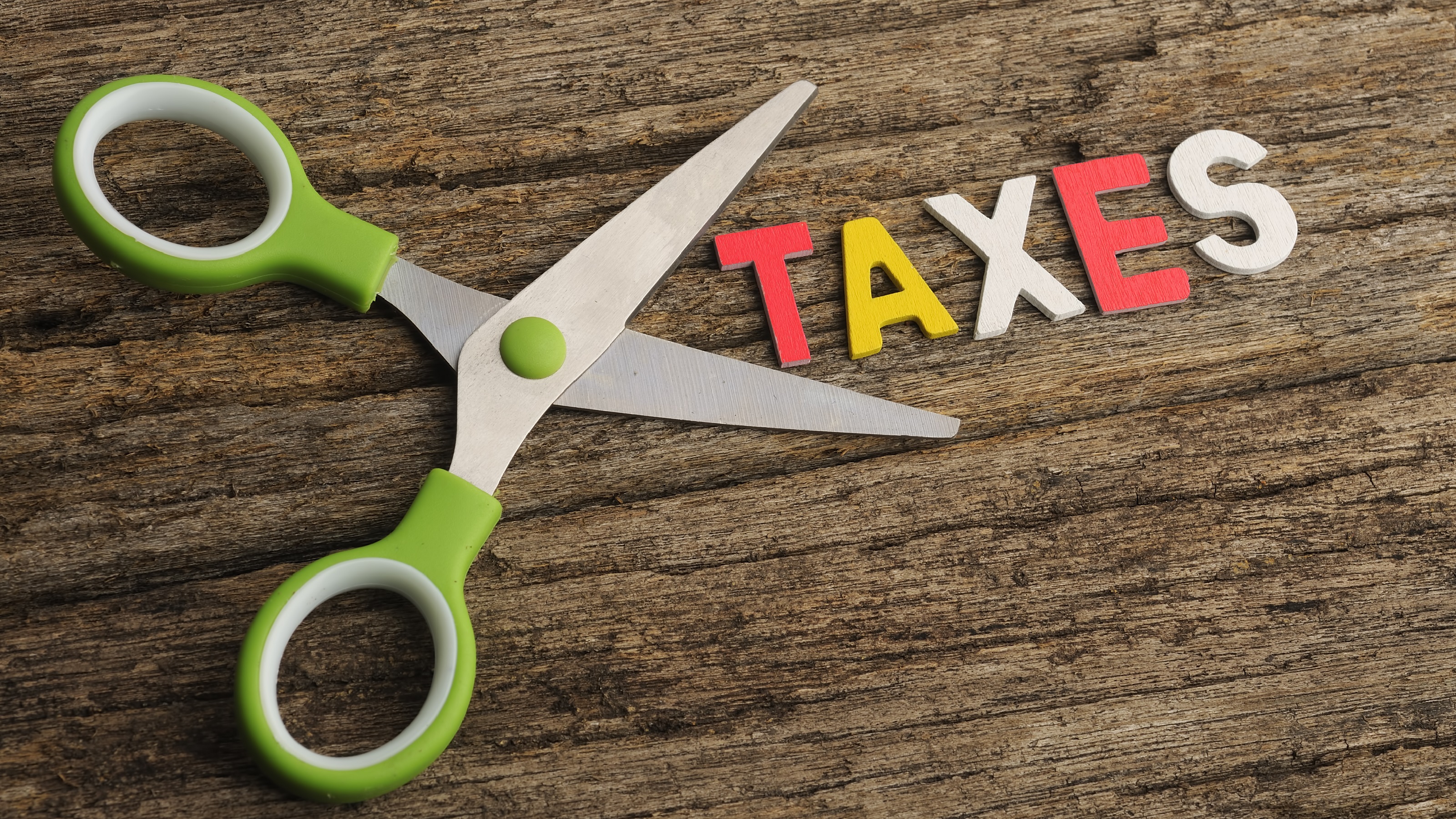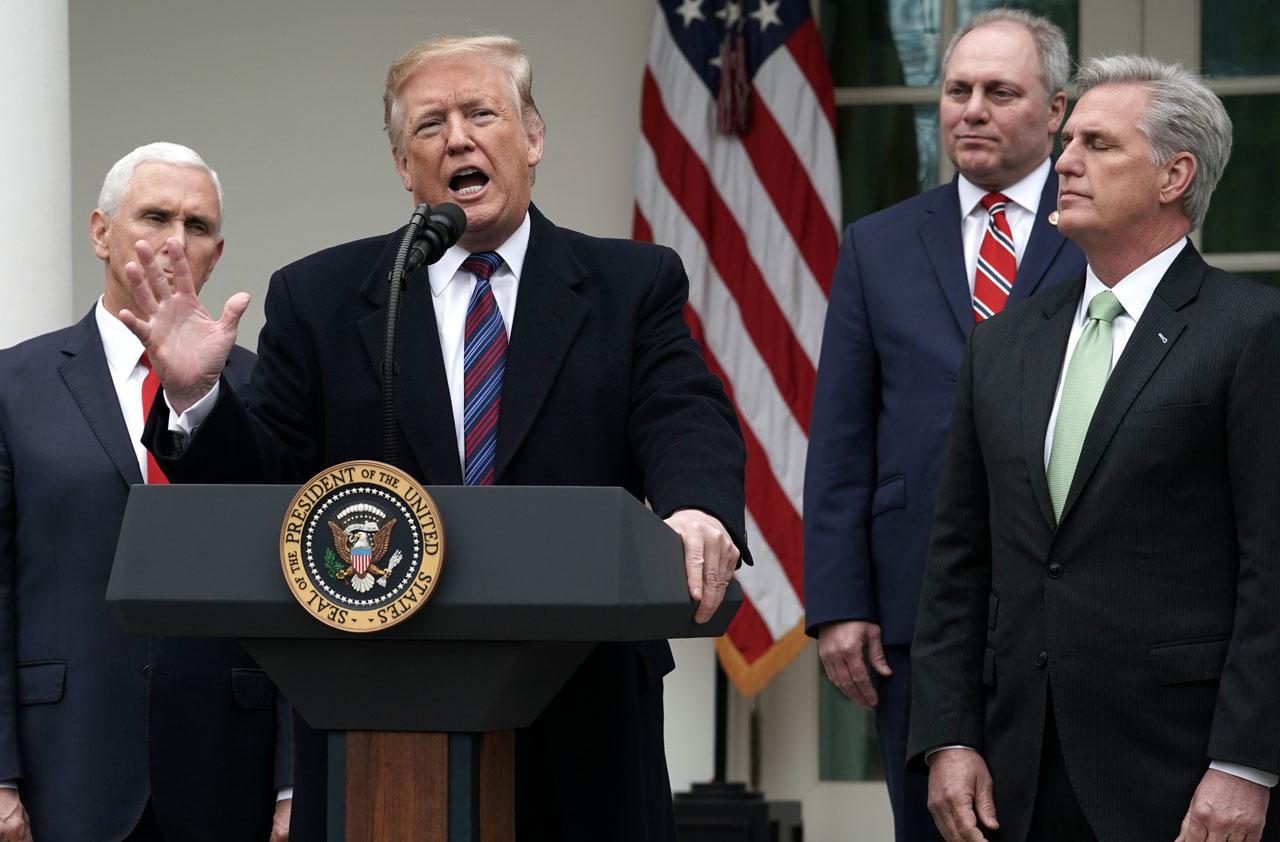Tax Changes are on Trump's 2025 To-Do List
Donald Trump campaigned on cutting taxes and, as president, he will push Congress to pass big tax changes next year


Profit and prosper with the best of Kiplinger's advice on investing, taxes, retirement, personal finance and much more. Delivered daily. Enter your email in the box and click Sign Me Up.
You are now subscribed
Your newsletter sign-up was successful
Want to add more newsletters?

Delivered daily
Kiplinger Today
Profit and prosper with the best of Kiplinger's advice on investing, taxes, retirement, personal finance and much more delivered daily. Smart money moves start here.

Sent five days a week
Kiplinger A Step Ahead
Get practical help to make better financial decisions in your everyday life, from spending to savings on top deals.

Delivered daily
Kiplinger Closing Bell
Get today's biggest financial and investing headlines delivered to your inbox every day the U.S. stock market is open.

Sent twice a week
Kiplinger Adviser Intel
Financial pros across the country share best practices and fresh tactics to preserve and grow your wealth.

Delivered weekly
Kiplinger Tax Tips
Trim your federal and state tax bills with practical tax-planning and tax-cutting strategies.

Sent twice a week
Kiplinger Retirement Tips
Your twice-a-week guide to planning and enjoying a financially secure and richly rewarding retirement

Sent bimonthly.
Kiplinger Adviser Angle
Insights for advisers, wealth managers and other financial professionals.

Sent twice a week
Kiplinger Investing Weekly
Your twice-a-week roundup of promising stocks, funds, companies and industries you should consider, ones you should avoid, and why.

Sent weekly for six weeks
Kiplinger Invest for Retirement
Your step-by-step six-part series on how to invest for retirement, from devising a successful strategy to exactly which investments to choose.
Getting the right tax advice and tips is vital in the complex tax world we live in. The Kiplinger Tax Letter helps you stay right on the money with the latest news and forecasts, with insight from our highly experienced team (Get a free issue of The Kiplinger Tax Letter or subscribe). You can only get the full array of advice by subscribing to the Tax Letter, but we will regularly feature snippets from it online, and here is one of those samples…
With a president-elect bullish on lower taxes, and many federal tax provisions ending after 2025, the odds for a big tax package couldn’t be better. Donald Trump will move fast on tax changes. It’s a top priority on his legislative agenda, and he believes he has a mandate from the voters who elected him as the next president.
Negotiating federal tax overhaul is even more crucial than in past years because many of the provisions affecting individuals in the 2017 Tax Cuts and Jobs Act are slated to expire after 2025. They include lower individual income tax rates and wider tax brackets, larger child credit, higher standard deductions, the $10,000 limitation on deducting state and local taxes, and the bigger lifetime estate and gift tax exemption.
Absent legislative intervention, the expiring tax changes will revert to the rules that were in effect in 2017. Some politicians, tax lobbying groups and tax think tanks refer to these soon-to-expire tax changes by such colorful names as “Taxmageddon,” “The Super Bowl of Tax,” “2025 Tax Cliff,” “Tax Sunset” and more.
From just $107.88 $24.99 for Kiplinger Personal Finance
Become a smarter, better informed investor. Subscribe from just $107.88 $24.99, plus get up to 4 Special Issues

Sign up for Kiplinger’s Free Newsletters
Profit and prosper with the best of expert advice on investing, taxes, retirement, personal finance and more - straight to your e-mail.
Profit and prosper with the best of expert advice - straight to your e-mail.
Trump has lots of ideas for taxes. Among them:
- Making the 2017 tax cuts permanent, possibly with even lower rates
- Hiking the child tax credit
- Dropping the corporate tax rate to 15% for many C corporations
- Imposing high across-the-board tariffs on imported goods
- Axing many of the green-energy tax breaks in the 2022 Inflation Reduction Act
- Ending the 2021 and 2022 expansions to the Obamacare subsidies, which now allow more people without affordable workplace health coverage to qualify for the premium tax credit, for buying health insurance through the marketplace
- Making tips nontaxable
A trifecta win by Republicans (the presidency, House and Senate) would empower them to achieve Trump's tax agenda, although not everything on Trump's tax wish list will get Congress's approval.
It’s looking like Republicans will end up winning the House. If the results hold, and Republicans keep the House, they’ll have a fair amount of leeway to do what they want. If Democrats somehow end up switching control of the lower chamber to their side, then the two parties will have to negotiate to come up with a compromise tax package.
Trump will have the support of a Republican-controlled Senate, but getting Senate Democrats to go along won’t be easy. If they balk, Republicans can try to use budget reconciliation to circumvent the 60-vote filibuster rule in the upper chamber. The budget reconciliation procedures require a simple majority, not 60 votes. This tactic has been used by both parties, for example, to pass the 2017 Tax Cuts and Jobs Act and 2022’s Inflation Reduction Act. If Democrats end up taking control of the House, this move may not be needed, since a compromise tax bill would stand a decent chance of getting the necessary 60 votes in the upper chamber.
Look for Congress to pass a big tax bill sometime next year, maybe in the fall or winter of 2025, with most tax changes taking place on a prospective basis, starting in 2026. This timing makes the most sense, given the 2025 expiration of the 2017 tax law.
There are a couple possible exceptions to this timing. One involves IRS funding, specifically, the extra money that the IRS got in the Inflation Reduction Act for enforcement and collection. After the 2022 midterm elections, one of the first bills passed by the Republican-controlled House was to repeal most of the IRS’s funding windfall.
The second involves the IRS's Direct File program that allows some taxpayers to electronically file returns for free using a smartphone, laptop or other device, with the help of online support from the IRS. The IRS piloted this program in 2024, and it is planning to expand it in 2025 to more eligible filers. Republican lawmakers have promised to quash Direct File.
If Republicans again control the House in January, as expected, ending the IRS's enforcement windfall and Direct File could be on the GOPs early to-do list .
This first appeared in The Kiplinger Tax Letter. It helps you navigate the complex world of tax by keeping you up-to-date on new and pending changes in tax laws, providing tips to lower your business and personal taxes, and forecasting what the White House and Congress might do with taxes. Get a free issue of The Kiplinger Tax Letter or subscribe.
Related Content
- A Look at Donald Trump's Tax Plans
- Key Tax Provisions That Are Expiring After 2025
- What are Trump's Positions on Capital Gains Taxes?
Profit and prosper with the best of Kiplinger's advice on investing, taxes, retirement, personal finance and much more. Delivered daily. Enter your email in the box and click Sign Me Up.

Joy is an experienced CPA and tax attorney with an L.L.M. in Taxation from New York University School of Law. After many years working for big law and accounting firms, Joy saw the light and now puts her education, legal experience and in-depth knowledge of federal tax law to use writing for Kiplinger. She writes and edits The Kiplinger Tax Letter and contributes federal tax and retirement stories to kiplinger.com and Kiplinger’s Retirement Report. Her articles have been picked up by the Washington Post and other media outlets. Joy has also appeared as a tax expert in newspapers, on television and on radio discussing federal tax developments.
-
 Nasdaq Leads a Rocky Risk-On Rally: Stock Market Today
Nasdaq Leads a Rocky Risk-On Rally: Stock Market TodayAnother worrying bout of late-session weakness couldn't take down the main equity indexes on Wednesday.
-
 Quiz: Do You Know How to Avoid the "Medigap Trap?"
Quiz: Do You Know How to Avoid the "Medigap Trap?"Quiz Test your basic knowledge of the "Medigap Trap" in our quick quiz.
-
 5 Top Tax-Efficient Mutual Funds for Smarter Investing
5 Top Tax-Efficient Mutual Funds for Smarter InvestingMutual funds are many things, but "tax-friendly" usually isn't one of them. These are the exceptions.
-
 Trump $10B IRS Lawsuit Hits an Already Chaotic 2026 Tax Season
Trump $10B IRS Lawsuit Hits an Already Chaotic 2026 Tax SeasonTax Law A new Trump lawsuit and warnings from a tax-industry watchdog point to an IRS under strain, just as millions of taxpayers begin filing their 2025 returns.
-
 The New Fed Chair Was Announced: What You Need to Know
The New Fed Chair Was Announced: What You Need to KnowPresident Donald Trump announced Kevin Warsh as his selection for the next chair of the Federal Reserve, who will replace Jerome Powell.
-
 Trump Reshapes Foreign Policy
Trump Reshapes Foreign PolicyThe Kiplinger Letter The President starts the new year by putting allies and adversaries on notice.
-
 Congress Set for Busy Winter
Congress Set for Busy WinterThe Kiplinger Letter The Letter editors review the bills Congress will decide on this year. The government funding bill is paramount, but other issues vie for lawmakers’ attention.
-
 The December CPI Report Is Out. Here's What It Means for the Fed's Next Move
The December CPI Report Is Out. Here's What It Means for the Fed's Next MoveThe December CPI report came in lighter than expected, but housing costs remain an overhang.
-
 The Kiplinger Letter's 10 Forecasts for 2026
The Kiplinger Letter's 10 Forecasts for 2026The Kiplinger Letter Here are some of the biggest events and trends in economics, politics and tech that will shape the new year.
-
 Special Report: The Future of American Politics
Special Report: The Future of American PoliticsThe Kiplinger Letter Kiplinger assesses the political trends and challenges that will define the next decade.
-
 The November CPI Report Is Out. Here's What It Means for Rising Prices
The November CPI Report Is Out. Here's What It Means for Rising PricesThe November CPI report came in lighter than expected, but the delayed data give an incomplete picture of inflation, say economists.